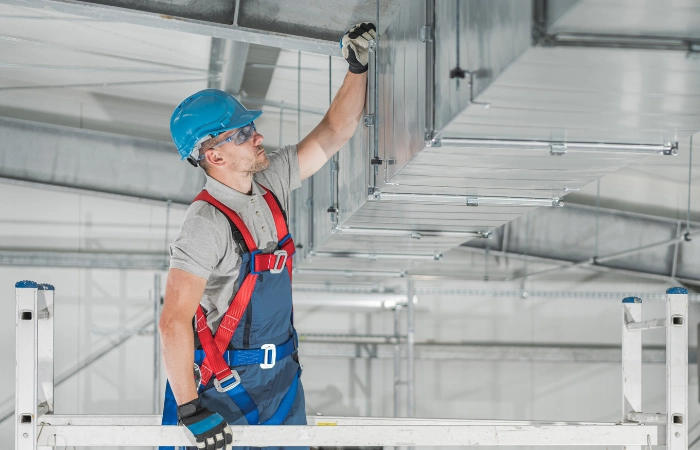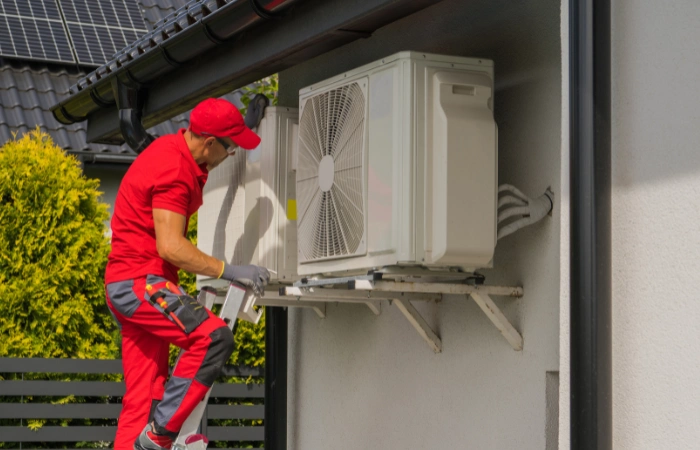When you decide to install an HVAC system, understanding the process can help you prepare and make informed decisions. An HVAC system is essential for maintaining a comfortable and energy-efficient home, especially during extreme weather conditions. Installation involves several steps, from assessing your home’s needs to selecting the right system, and ensuring everything is set up correctly.
This guide will walk you through the key factors that influence installation time and offer insights on what to expect. Whether you’re replacing an old system or installing one for the first time, knowing the details can ensure a smooth and efficient process.
Overview of HVAC System Installation
Installing an HVAC system involves several steps, starting with assessing the home’s heating and cooling needs. The process includes selecting the appropriate system size and type, removing any old equipment, and installing new units. Technicians will run ductwork, connect electrical wiring, and test the system to ensure it operates efficiently.
The installation also includes configuring thermostats and providing instructions on system maintenance. A well-installed HVAC system ensures optimal comfort and energy efficiency for the household.
So, How Long Does It Take to Install an HVAC System?
The duration for installing an HVAC system typically ranges from one to three days. Factors influencing the time include the system’s complexity, the size of the home, and the condition of existing ductwork. Simple replacements may be completed in a day, while more extensive installations involving ductwork or additional components might take longer. Coordination with skilled technicians and thorough preparation can help streamline the process, minimizing downtime and ensuring a smooth installation experience.
Factors Affecting the Duration When Installing an HVAC System
There are several factors that can affect the duration of installing an HVAC system. Understanding these factors is crucial for planning and ensuring a smooth installation process. Here are six key factors:
1. System Complexity
The complexity of the HVAC system being installed significantly impacts the duration. Advanced systems with features such as zoning, smart thermostats, and multi-stage units require more time for installation due to their sophisticated technology and additional wiring needs. These systems also necessitate thorough calibration and testing to ensure optimal performance, which extends the installation period.
2. Home Size and Layout
The size and layout of the home are crucial determinants of installation time. Larger homes or those with intricate layouts, multiple floors, or hard-to-reach areas demand more extensive ductwork and additional components. This increases the time required for proper installation and testing. Technicians need to carefully plan the duct routes and ensure even airflow distribution throughout the home, adding to the overall duration.
3. Existing Infrastructure
The state of the existing infrastructure, including ductwork and electrical systems, plays a significant role. If the current ductwork is in poor condition or not compatible with the new system, it may need repairs or complete replacement, prolonging the installation process. Similarly, outdated or inadequate electrical systems might require upgrades to handle the new HVAC unit’s power requirements.
4. Permitting and Inspections
Securing necessary permits and scheduling inspections can affect the installation timeline. Local building codes often require permits for HVAC installations, and this process can vary in duration depending on the municipality. Additionally, inspections must be coordinated with local authorities to ensure the installation meets safety and efficiency standards. Delays in obtaining permits or scheduling inspections can extend the overall time frame.
5. Weather Conditions
Weather conditions can influence the duration of HVAC installation, especially for outdoor components. Inclement weather, such as heavy rain, snow, or extreme temperatures, can hinder progress and pose safety risks for technicians. This can lead to delays or rescheduling of certain installation steps, particularly when installing outdoor units, running refrigerant lines, or performing system tests that require stable conditions.
6. Technician Experience and Availability
The experience level and availability of the HVAC technicians are critical factors. Experienced technicians can work more efficiently, troubleshoot issues quickly, and ensure the installation adheres to industry standards, potentially shortening the timeline. However, high demand for skilled technicians, especially during peak seasons, can lead to scheduling delays. Ensuring the availability of a competent installation team is essential for timely completion.
Frequently Asked Questions

What preparations are needed before you install an HVAC system?
Before installing an HVAC system, homeowners should ensure that the installation area is accessible, remove any obstacles, and verify that their electrical systems can support the new unit. Additionally, having any necessary permits ready can help streamline the process.
Will my home be disrupted when you install an HVAC system?
Installing an HVAC system may cause some disruptions, such as noise and the presence of technicians throughout the home. However, professional installers aim to minimize these disruptions and work efficiently to complete the installation promptly.
Can I stay at home while you install an HVAC system?
Yes, you can typically stay in your home during the installation of an HVAC system. While there may be some inconvenience due to noise and movement of technicians, they will work to minimize disruption to your daily routine.
Are there any potential additional costs that could arise during HVAC installation?
Unexpected costs can arise if technicians discover issues such as damaged ductwork, outdated electrical systems, or the need for additional permits and inspections. It’s advisable to have a contingency budget and discuss potential extra costs with your HVAC contractor in advance.
Conclusion
Knowing the factors that influence the time to install an HVAC system ensures a smoother and more efficient process. From system complexity to technician experience, being well-prepared can minimize disruptions and enhance performance.
Contact Tropic Air-Conditioning Inc. today to schedule your HVAC installation. Trust the experts in Sarasota for efficient and reliable heating, cooling, and ventilation solutions tailored to your home’s needs. Call us now to get started!




